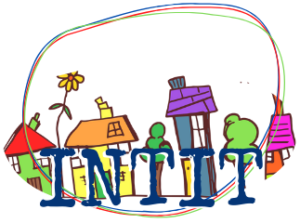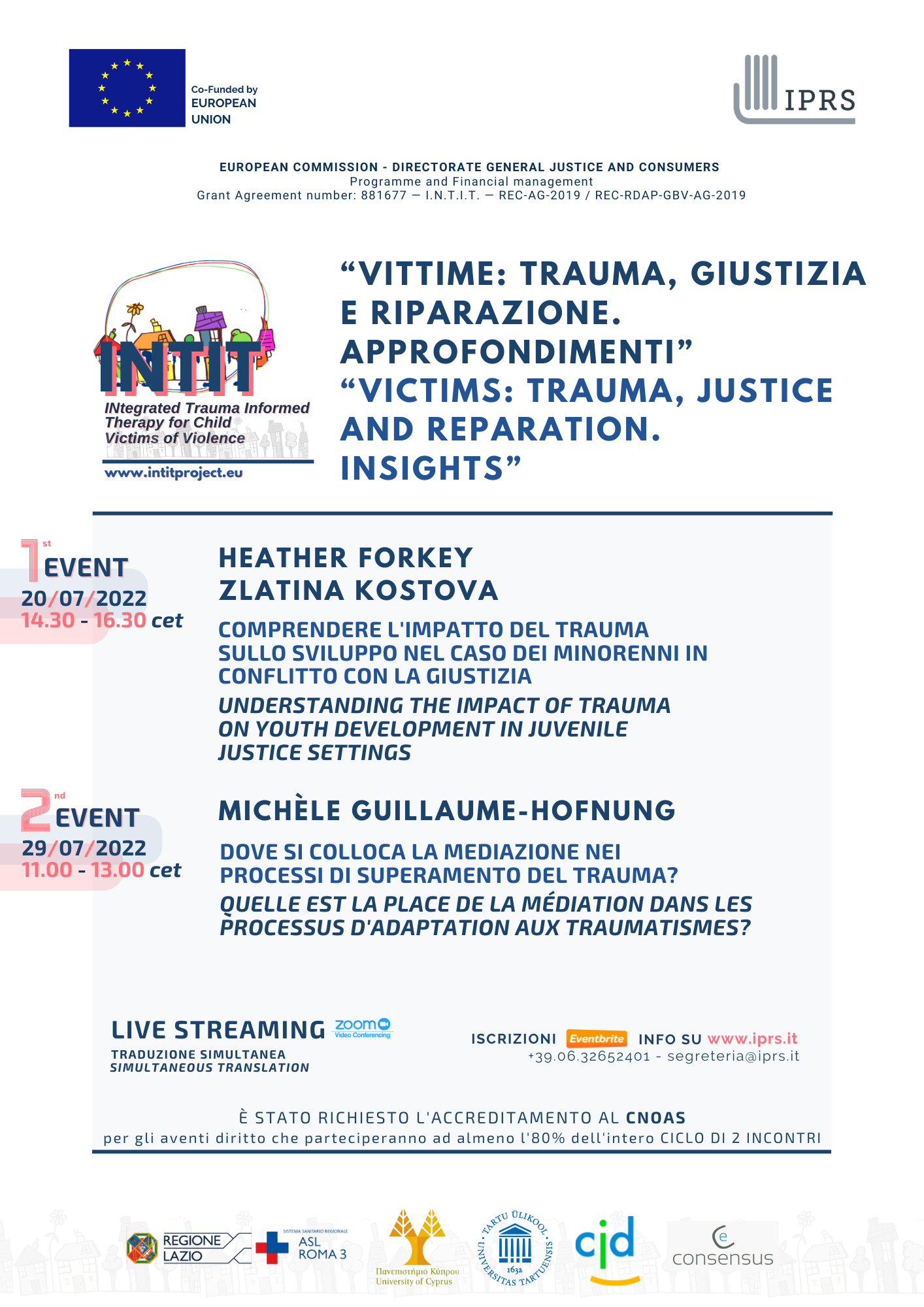"Victims: trauma, justice and reparation. Insights"
1st Event

The European project I.N.T.I.T. (Integrated Trauma Informed Therapy for Children Victims of Violence), co-funded by the European Union, coordinated by the Psychoanalytic Institute for Social Research and supported in Italy by the Department for Juvenile and Community Justice, has looked at how to assure the provision of Integrated Trauma Informed Services for child victims of interpersonal violence and abuse, in each of the partner countries participating in the initiative (Spain, Germany, Estonia, Cyprus). This was done through a set of activities aimed at strengthening the capacity of the professionals working with minors exposed to trauma and violence to operate according to the TIC standards. Furthermore, at the systemic level the aim has been to promote integrated care provision, ensuring collaboration between different agencies (judicial, social, medical) in order to minimize secondary victimization and maximize the efficacy of the therapy and services provided locally.
As part of the project, two seminars have been designed in Italy as awareness raising activities on Integrated Trauma Informed Care, targeting practitioners in the justice system and other professionals involved in interventions directed to crime victims, children exposed to trauma and violence, offenders, as well as in restorative justice processes involving victims with trauma.
The two events scheduled for 20/07/2022 from 14.30 to 16.30 CET and for 29/07/2022 from 11.00 to 13.00 CET will offer the opportunity to shed light on possible intervention practices following the standards and recommendations of the Trauma Informed Care approach and of the Directive 2012/29/EU.
The seminars in streaming will be held on the Video Conferencing ZOOM platform.
Simultaneous translation service is available.
FIRST EVENT – 20th July 2022, 14.30 – 16.30 cet.
“PUTTING ON YOUR TRAUMA LENS – UNDERSTANDING THE IMPACT OF TRAUMA ON YOUTH DEVELOPMENT IN JUVENILE JUSTICE SETTINGS”
Speakers:
Heather Forkey, MD, Professor of Pediatrics at the University of Massachusetts Chan Medical School, and Director of the Foster Children Evaluation Service (FaCES) of the UMass Memorial Children’s Medical Center and Zlatina Kostova, PhD, Clinical psychologist, Director of Training at Lifeline For Kids at Department of Psychiatry at the University of Massachusetts Chan Medical School.
Institutional Greetings by Giuseppe Cacciapuoti, Director General for Personnel, Resources and the Implementation of Juvenile Judge Measures, Department for Juvenile and Community Justice. Opening remarks by Isabella Mastropasqua, Head of Office II DGPRAM, Department for Juvenile and Community Justice. Moderator: Raffaele Bracalenti, President, Psychoanalytic Institute for Social Research.
Abstract:
The significance of adverse childhood experiences (ACEs) is commonly raised in discussions of child welfare and juvenile justice practice, yet there is still confusion about the implications of ACEs in the context of child welfare and child delinquency. Without assuming any deterministic link between trauma and deviance, interventions with deviant minors can learn from a trauma-oriented perspective, which increasingly shows how, on the one hand, antisocial personality disorder (ASD) can be linked to a traumatic history and, on the other hand, how children who have been through adverse childhood experiences (ACEs) more frequently may have deviant behaviour.
Expanding evidence from molecular biology, genomics, immunology and neuroscience links the early experience of adversities with subsequent impacts on health, development, academic achievement, productivity and mental illness. Yet childhood experience is not destiny. How trauma impacts the developing brain, how children can be impacted and protected, what explains the variable response to adversity and the challenges of preventing and recognizing the effect of trauma on children will be explored. This will include implications for all those in child welfare and juvenile justice who care for children – from caregivers and clinicians to administrators and advocates. The second part of the training will include practical strategies on how to establish a sense of safety, connectedness and regulation with youth in the juvenile justice system.
Buy your free virtual ticket
GUIDELINES for interpretation on Zoom
You can contact us at +39.06.32652401 or by email at
segreteria@iprs.it



